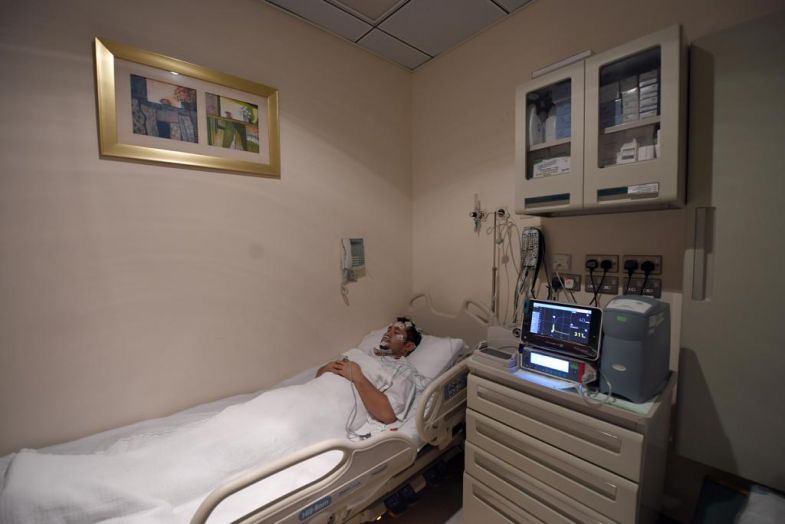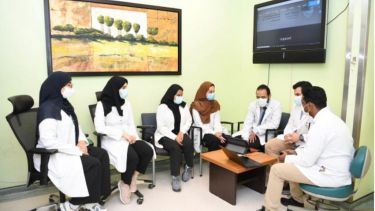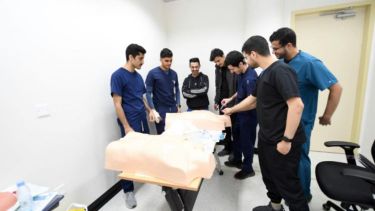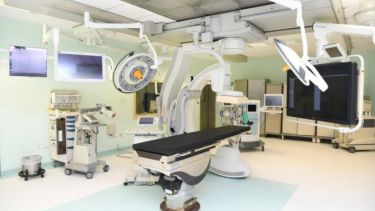
The Sleep Disorder Center at King Saud University tackles the hidden threat of sleep disorders
Sleep is vital to human health, but sleep disorders often go undiagnosed, putting people at risk, according to Ahmed BaHammam, professor of medicine and director of the University Sleep Disorders Center at the College of Medicine at King Saud University in Saudi Arabia. In addition to research, the sleep center has trained more than 281 doctors from differernt nationalities and departments majoring in sleep medicine.
“By treating these disorders, you decrease morbidity and mortality,” says BaHammam, a specialist in thoracic diseases and sleep medicine. BaHammam is also editor-in-chief of the journal Nature and Science of Sleep. He received the King Saud University Lifetime Achievement Award in 2016, the dean’s Distinguished Researcher Award at the College of Medicine in 2009, and made it to the list of pioneers and thought leaders in sleep medicine in the fifth edition of Kryger’s Principles and Practices of Sleep Medicine. BaHammam is, according to Expertscape’s Daily Experts ranking, among the top 0.55 per cent of 74,192 published authors worldwide on respiratory insufficiency from 2011 to 2021.
Formally established in 2002, the sleep centre aims to provide care to those with sleep disorders, train medical professionals and conduct high quality and locally relevant research.
It is equipped with state-of-the-art diagnostic and therapeutic equipment, and receives referrals from all age groups, not only across Saudi Arabia but internationally as well. The centre also trains physicians and technologists from Saudi Arabia and neighbouring countries.
Despite the centre’s renown, public outreach is a vital component of its work. “Most patients don’t know that they have sleep problems,” BaHammam explains. Incidence of sleep apnoea, insomnia and narcolepsy are relatively high in Saudi Arabia, alongside diseases such as obesity, diabetes and hypertension. However, many of these conditions go hand-in-hand, and treating sleep disorders can improve or prevent other conditions, he says.
It is important for research to be culturally relevant, says BaHammam. To that end, the issue of Islamic culture and sleep is a notable research area for the centre. Early morning prayers, which are part of the Islamic religion, mean that Muslims often have different sleep patterns to people of other faiths and cultures. Also, the holy month of Ramadan, which involves fasting and pre-dawn meals, changes people’s sleep cycles.
“We look at sleep and sleep disorders with a cultural understanding and to present things that Western societies are probably not aware of,” he says. BaHammam and fellow scholars are currently researching the effects of Ramadan on people’s sleep, with a sample of 24,500 adults.
The centre also looks at universal factors affecting sleep, such as whether soft drinks influence sleep and circadian patterns, and how Covid-19 altered the breathing of people with sleep disorders. For the Covid research, BaHammam and colleagues have worked with other researchers around the world. In one instance, he co-authored a global systematic review of the prevalence and severity of insomnia symptoms during the pandemic. A book edited by BaHammam, titled Sleep and Covid-19: a Global View, is expected to be released in the first quarter of 2023.
Collaboration, both international and local, is also woven into the centre’s activities, says BaHammam, listing universities in Canada, the US, Australia, North Africa and the Gulf region. It ensures that the centre is producing world-class research, but also enables its researchers to contribute to many projects.
BaHammam and colleagues are not only researching sleep disorders, but also finding ways to help people suffering from them. For example, one of the centre’s doctoral candidates is investigating online methods of cognitive behavioural therapy for insomnia.
Going forward, there are a number of exciting projects on the horizon, says BaHammam. The centre is undertaking pioneering work in new and emerging fields of research, such as nutrigenetics and sleep (the interplay between nutrition, genetics and sleep) and nomophobia (the psychological condition when people have a fear of being detached from mobile phone connectivity).
The goal of the centre, BaHammam says, is to educate people about sleeping disorders and help those suffering from them – whether through training medical professionals or through high-quality relevant research.
Find out more about the University Sleep Disorders Center at the College of Medicine at King Saud University.




